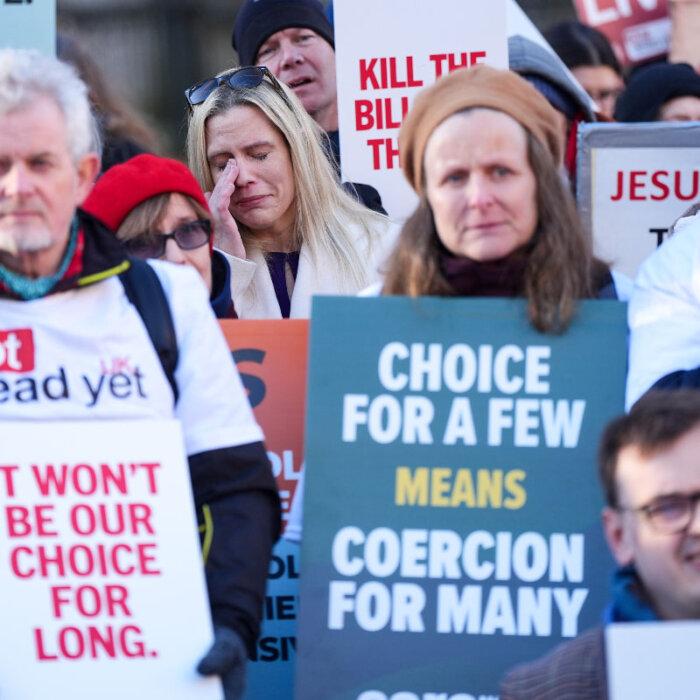Dozens of MPs have written to Commons Leader Lucy Powell asking for the vote on assisted suicide to be delayed to give lawmakers more time to scrutinise the bill.
According to the cross-party group of MPs, only 12 of 133 amendments tabled have had a vote, and just 14 percent of MPs have had a chance to speak on the bill.
MPs say that when they arrive at Westminster on Friday for the bill’s Third Reading, they will not have had sight of the full, final version of it, adding that the bill has “radically changed” since it was presented to lawmakers last year.
The Private Member’s Bill (PMB) sponsored by Labour’s Kim Leadbeater would change the law in England and Wales, allowing terminally ill adults with fewer than six months to live the ability to apply for a medically-assisted death.
It passed at Second Reading on Nov. 29, 2024, with a majority of 55 votes.
‘Not a Normal Bill’
The MPs wrote to the Commons leader: “On Friday, Members will debate and vote on perhaps the most consequential piece of legislation that has appeared before the House in generations.“This is not a normal Bill. It alters the foundations of our NHS, the relationship between doctor and patients, and it strips away power from Parliament, concentrating it in the hands of future Secretaries of State for Health.”

Members raised the issue of how trying to pass this kind of legislation through PMBs “has shown itself to be a woefully inadequate vehicle for the introduction of such a foundational change to our NHS and the relationship between doctor and patient.”
They added that the bill has created concern among the medical profession and charities, and that the government and MPs “should listen to their expertise.”
Student Medics Voice Opposition
Separately on Monday, hundreds of student doctors from universities across the UK voiced their opposition to the bill.They said: “We do not oppose dignified death—far from it.
“We oppose a Bill that risks offering death in place of care, that widens health inequalities, that places vulnerable patients in danger, and that reshapes the ethical foundation that our profession is built upon without any clear support.”

Similarly last week, around 1,000 doctors co-signed a letter urging MPs to vote against this “deeply flawed” bill which they said was unsafe.
In the months leading up to this next major vote, some prominent medical groups that are neutral on the issue of assisted suicide have either raised concerns or declared their objection to Leadbeater’s bill.
Mixed Opinion Among Medical Professionals
However, opinion across these groups varies. Last week, several RCPsych members, including a former college president and vice president, distanced themselves from their body’s statement and wrote to MPs expressing their support for the bill.They described Leadbeater’s bill as “workable, safe and compassionate” with a “clear and transparent legal framework,” which they argued is “far preferable to the unjust status quo, where we know dying people seek to exercise choice at the end of life, but without any upfront safeguards, routine oversight or support from relevant clinicians.”
A number of MPs in the House of Commons who are GPs also back the bill, including Dr. Simon Opher.
On Monday, Opher said it was “no surprise that medical students, like GPs and most other professionals, have a range of opinions on assisted dying.”







